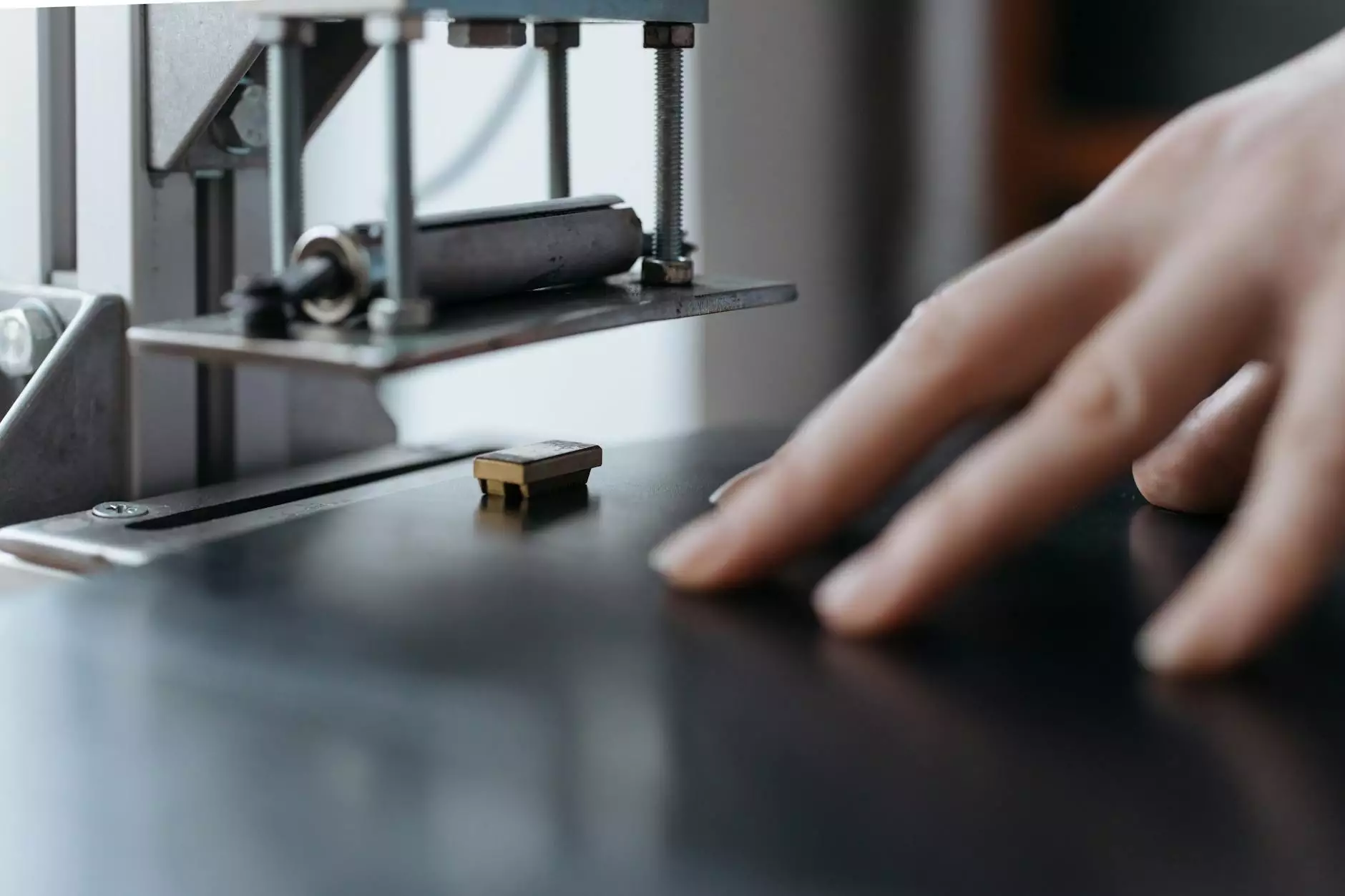Understanding Solenoid Valves Manufacturers

In the complex world of manufacturing and industrial applications, solenoid valves play a crucial role. As industries evolve, the demand for reliable solenoid valves manufacturers increases. This article delves into the essentials of solenoid valves, the manufacturing process, the industries they serve, and how to choose the best manufacturers for your needs.
What is a Solenoid Valve?
A solenoid valve is an electromechanical device used to control the flow of fluids. It utilizes a solenoid – a coil of wire that generates a magnetic field when electric current is passed through it – to open or close a valve. This technology is pivotal in various applications, including:
- Agriculture
- Automotive
- Water management
- HVAC systems
- Manufacturing processes
The Basic Working Principle of Solenoid Valves
The fundamental operation of a solenoid valve involves the following steps:
- When the solenoid coil is energized, it creates a magnetic field.
- This magnetic field moves the plunger inside the valve.
- The movement of the plunger opens or closes the valve seat, thereby controlling the flow of fluid.
The Importance of Solenoid Valves in Industry
Solenoid valves are invaluable in increasing operational efficiency and ensuring safety across multiple sectors. Their advantages include:
- Automation: These valves enable automated systems to operate efficiently without manual intervention.
- Precision Control: They provide precise control over fluid flow, which is essential in processes requiring high reliability.
- Quick Response Time: Solenoid valves can activate and deactivate nearly instantaneously, facilitating rapid system response.
- Energy Efficiency: Many solenoid valves are designed to consume low energy while performing effectively.
Key Applications of Solenoid Valves
Solenoid valves find applications in a myriad of industries, illustrating their versatility:
1. Automotive Industry
Within the automotive sector, solenoid valves regulate fuel injection, control the flow of coolant, and manage emissions effectively. High-quality valves can significantly enhance engine performance and efficiency.
2. Water Treatment
In water treatment facilities, these valves are essential for controlling the flow of water and chemicals during purification processes, ensuring safe and clean drinking water.
3. HVAC Systems
Heating, ventilation, and air conditioning systems rely on solenoid valves to manage refrigerant flow, contributing to overall system efficiency and comfort.
4. Food and Beverage Industry
Solenoid valves are widely used in this sector to control the flow of various liquids, ensuring safety and compliance with health standards.
Choosing the Right Solenoid Valves Manufacturers
Selecting the right manufacturer for solenoid valves is critical to the success of your operations. Here are essential factors to consider:
1. Quality Assurance
Ensure that the manufacturer adheres to international quality standards such as ISO 9001. This certification indicates a commitment to quality management systems that enhance customer satisfaction.
2. Range of Products
The best solenoid valves manufacturers offer a wide range of products designed for various applications. Assess their catalog to determine if they have the specific valves that meet your operational needs.
3. Customization Options
Custom solutions can be necessary to meet specific operational requirements. Manufacturers offering customization can provide tailored solutions, ensuring that your unique needs are met efficiently.
4. Customer Support
Reliable customer support during and post-purchase is indispensable. Inquire about the manufacturer’s support system and how they assist customers with troubleshooting and maintenance.
5. Pricing and Value
While price is a factor, focus on the overall value provided by the manufacturer. A higher upfront cost might be justified by enhanced performance and durability, leading to long-term cost savings.
The Manufacturing Process of Solenoid Valves
The manufacturing process of solenoid valves involves several steps, ensuring that the final product meets performance and durability standards. Here’s a detailed overview:
1. Design and Prototyping
The journey begins with the design phase, where engineers create valve designs that meet specific requirements. This may include considerations such as pressure ratings, materials, and operational environments. Prototyping is essential in this phase to evaluate functionality and identify potential issues.
2. Material Selection
Choosing the right materials is crucial for the performance of solenoid valves. Common materials include:
- Brass
- Stainless steel
- Plastic
- Bronze
3. Manufacturing Techniques
Manufacturing solenoid valves typically involves various techniques such as:
- Casting: Metal is poured into molds to form parts.
- Machining: Precision cutting and shaping of materials.
- Assembly: Components are assembled to create the final valve.
4. Testing and Quality Control
After manufacturing, rigorous testing is conducted to ensure that each valve meets performance and safety standards. Common tests include pressure tests, leak tests, and electrical checks.
Future Trends in Solenoid Valve Manufacturing
The landscape of solenoid valve manufacturing is continuously changing, influenced by advancements in technology and shifting industry demands. Notable trends include:
1. Integration with IoT
The Internet of Things (IoT) is leading to the emergence of smart solenoid valves equipped with sensors and connectivity. This integration allows for real-time monitoring and control, enhancing efficiency and system reliability.
2. Eco-Friendly Manufacturing
As sustainability becomes critical, manufacturers are adopting eco-friendly materials and production methods, aiming for reduced environmental impact.
3. Increased Customization
With the diversification of industries, there's a growing demand for customized solutions tailored to specific operational needs, driving manufacturers to offer more versatile products.
Conclusion
In the rapidly evolving industrial landscape, the role of solenoid valves manufacturers is indispensable. By understanding their significance, the manufacturing process, and how to choose the right partner for your operations, businesses can harness the full potential of these essential components. Investing in reliable and high-quality solenoid valves can lead to improved operational efficiency and decreased maintenance costs, ultimately driving business success.









